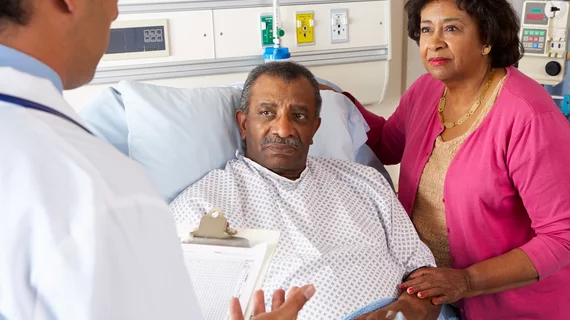When TEER fails, most patients require mitral valve replacement
Almost all patients with severe mitral regurgitation who undergo transcatheter edge-to-edge mitral repair (TEER) will require mitral valve replacement if the procedure is not a success, according to new data presented at the 101st Annual Meeting of the American Association for Thoracic Surgery.
The study’s authors also shared their analysis in the Journal of the American College of Cardiology, writing that “these findings should inform patient consent for TEER, clinical trial design and clinical performance measures.”
The group examined data from 463 patients with a median age of 76 years old. When TEER failed, the surgical repair rate was just 4.8%.
Also, according to a second analysis looking at nearly 600 patients treated at 227 different hospitals, operative mortality was 2.6% when the center’s specialists were more experienced. When the specialists were less experienced in this area, however, operative mortality jumped to 12.4%.
“The fact that TEER takes surgical repair off the table as an option for patients makes it essential that we have a very clear understanding of which patients will benefit,” lead author Joanna Chikwe, MD, chair of the department of cardiac surgery in the Smidt Heart Institute at Cedars-Sinai Medical Center in Los Angeles, said in a prepared statement. “This finding has important implications for treatment choice in lower-risk patients with degenerative disease. These findings should inform patient consent for TEER, design of clinical trials, and clinical performance measures.”
Click here to read the full study in the Journal of the American College of Cardiology.

